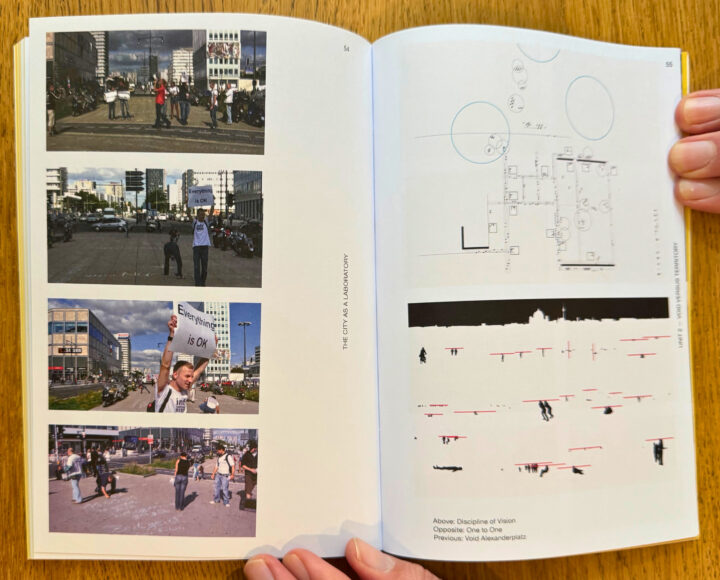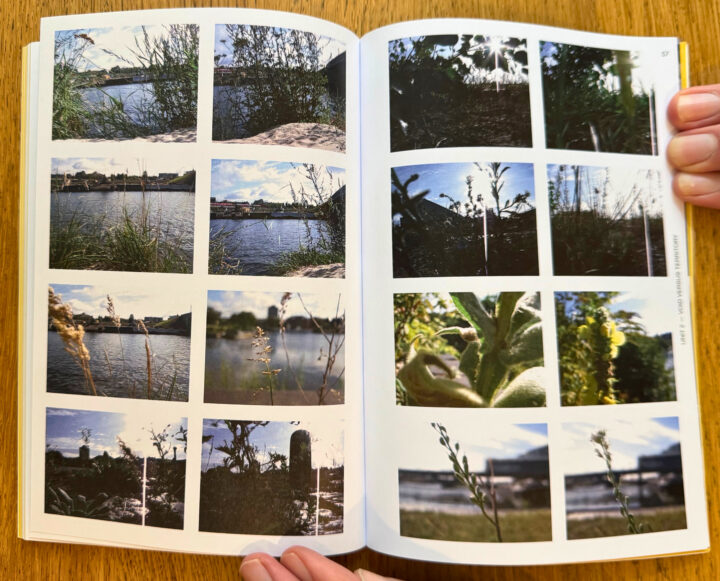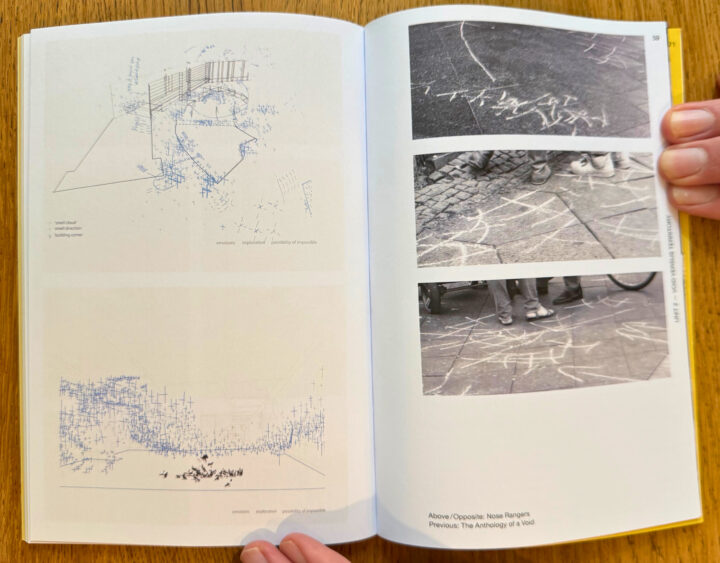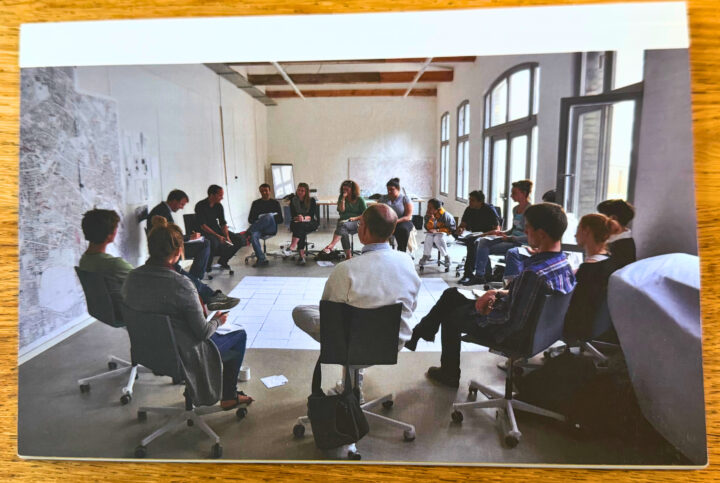Essay: About the Atonal Logic of the Urban

Unit 2 Brief: Void Versus Territory
Christopher Dell & Stefano Rabolli Pansera
Ausschnitt aus dem Essay:
In Berlin, the historical traces materialized in the form of gigantic empty spaces. How can we turn the voids into new territories? How to dwell the voids not in the sense of ‘occupying’ them but in the sense of ‘making sense’ of them? Which spatial strategies can be employed to domesticate these spaces that have lost any apparent urban dimension. Refusing simultaneously both the classical rules of filling the voids with an urban content and the romantic attitude of leaving the voids as ruins, the Unit focused on notation as a tool for non-representational design.
Notation is usually seen as a tool to represent what has to be played musically. Though, in 1950s new types of notation emerged: as process draft that would enhance the process without fully describing it. This form can produce a non-representational design: it does have a meaning but this meaning unfolds in the performative practise itself. After a cinematic (Space–Time) exploration of a given area in Berlin, we defined a specific type of notation for a happening. The transformation of the site (Place) into a public happening (Occasion) will promote a new way to dwell in the Urban void.



About the Atonal Logic of the Urban: Notation & Performing the Diagram
Christopher Dell
Ausschnitt aus dem Essay:
Notation
The concept of notation in music stands for the graphic signification of a musical process. Specific to European music is the development of a musical notation that aims to fix pitch, duration and volume in all their particulars. Its concern was, and is, the perfect reproduction of musical works. A paradigm shift in the history of European music from orality to writing has not only led to the development of highly detailed musical notation, but decisively stamped performance praxis itself. Practices is defined as the interpretation of a script successive to its last detail.
In this context, the divide between the written text and the sound of music as it is performed also historically precipitates the growing divide between composition and performance, as well as between conception and performance. This is a departure from the clear definition of authorship, which rests on a postulate of originality. In Marx’s sense, we can also speak of a division of labour in music, witness and dependent to specific relations of production, and to specific relations of production and dependence. The division of labour implies, for example, that the representation of sound lies with the author, while the performer is charged with discovering it as a faithfully as possible after the fact.

„About the Atonal Logic of the Urban“, in: Kneer/Müller (Hg.), AA Berlin Laboratory: The City as a Laboratory, London.